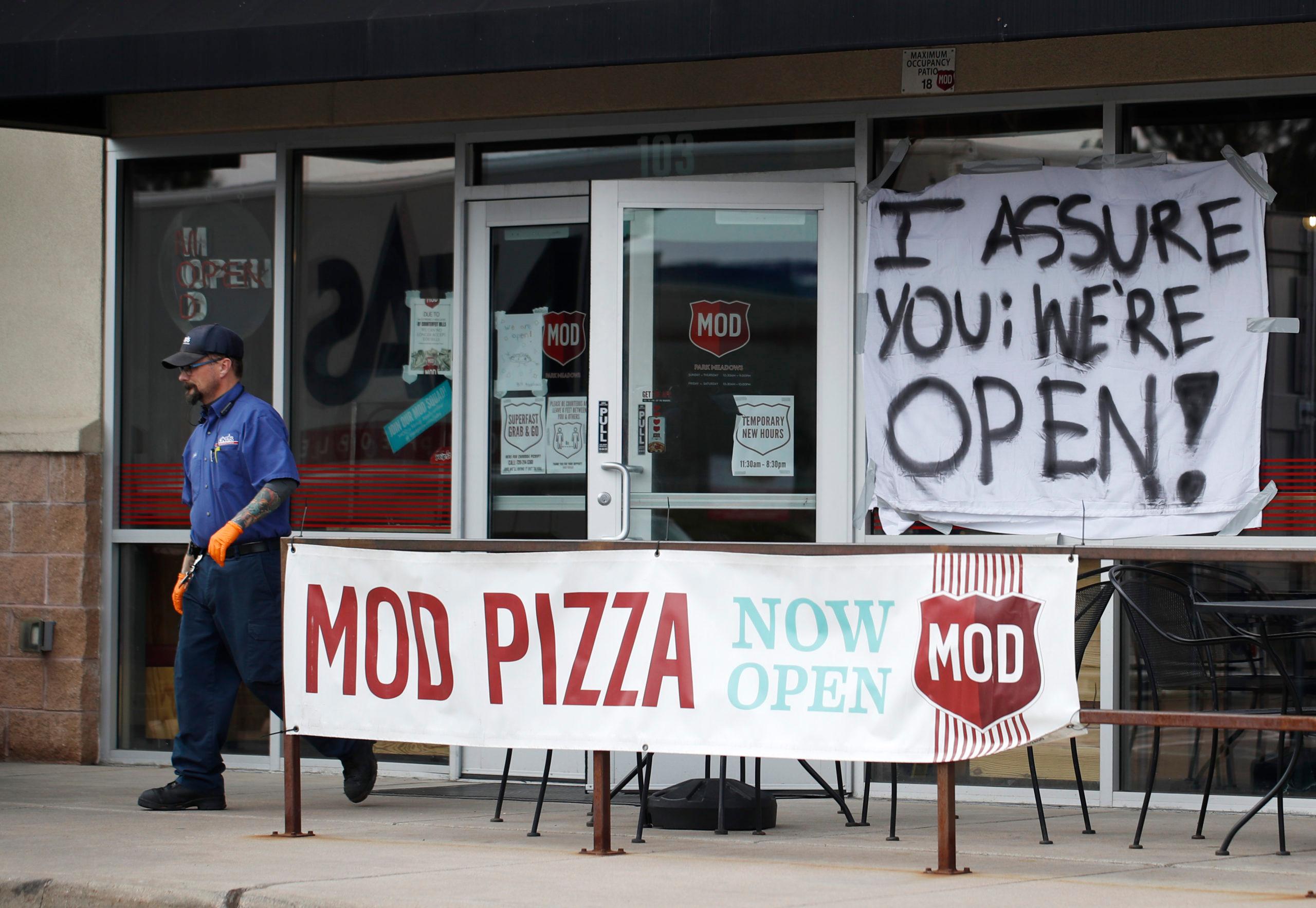
Stores and offices are shut, paychecks have stopped coming and hundreds of thousands of Coloradans are scrambling for help.
Applying for benefits can be a head-hurter in normal times but with hundreds of thousands of people hitting websites and call lines at the same time, there’s lots of confusion out there.
Colorado Matters brought in experts in unemployment, social services and small business to answer your questions in a special called “Making Ends Meet.”
Unemployment
Phil Spesshardt of the Colorado Department of Labor and Employment talked about unemployment, just as the state started taking claims from gig workers, the self-employed and independent contractors under a new federal law.
I’m a gig worker, self-employed or an independent contractor. When can I collect unemployment?
The federal government approved new benefits for these workers last month. The state’s website for claiming them went live today. The program is called Pandemic Unemployment Assistance. Workers who hold traditional jobs and file W-2s can apply here.
I heard the federal government is providing an additional $600 per week to everyone who qualifies for unemployment. When will I see the money?
Benefits will start going out Monday, April 20.
What if I earn both gig and traditional W-2 income?
You’re likely only eligible for unemployment payments on the amount you reported on your W-2, unless you've earned less than $2,500 in W-2 wages since Jan. 1, 2019. You can’t apply under both programs. In either case, you must apply for regular unemployment first. If you are rejected, you can apply for PUA.
When traditional workers rushed to file claims a few weeks ago after the pandemic hit, it took days to get through. Will it be better for this new group of workers?
The state has beefed up its website and expanded its call centers. There may be delays at first for this group, but not as bad as they were in the first few weeks.
If I need to talk to somebody at your call center what’s the best time to reach them?
The Colorado Department of Labor and Employment has upgraded its website and expanded its call centers to meet the rush of claims. The call centers are open 8 a.m. - 8 p.m.
The Safety Net
Michelle Barnes, director of the Colorado Department of Human Services, answered questions about meeting basic needs.
Where do I go for help?
The statewide 211 number has been expanded to refer people to resources in their areas.
What if I can’t pay my rent?
Gov. Jared Polis has asked property owners to hold off on evictions and late fees until at least April 30. State money and grants from nonprofits have provided aid for about 3,500 low-income families so far.
What if I need food?
Calling 211 will connect you to food pantries for immediate needs and to people who can help you file for SNAP benefits. There’s been a 10 percent increase in SNAP filings over the last month.
Where can I contribute my stimulus money to help?
The state website, your favorite nonprofit or the United Way.
Is there a government moratorium on rent payments?
Not at the state level. Some local governments are considering the idea
Is there relief for caregivers dealing with family members who are ill, child care and other concerns?
The state has a hotline, 1-844-493-8255, where you can talk to someone about your concerns, get mental health care and connect with resources such as respite care. AARP has a website with Colorado COVID-19 resources.
Small Business
Colorado’s 600,000 small businesses entered a new reality last month. Glenn Plagens, who directs the state’s office of Business Support and Rural Prosperity, and Robin Lohre, owner of the Denver boutique Talulah Jones, offered their advice and experience.
What is a Payment Protection Loan?
It’s a loan that allows businesses to keep employees in place until they reopen. Assuming the terms are met, the loan will be forgiven. The original $349 billion in federal money has been spent. Congress is reportedly near a deal to provide another $370 billion.
Where else can I get a loan?
Go to the Choose Colorado website for an updated list of more than 165 alternative funding sources.
What about business advice?
The Colorado Small Business Development Center website has a list of more than 200 consultants who will provide advice for free.
Editor's Note: This story was updated to clarify how workers with W-2s and gig economy jobs can apply for unemployment.









